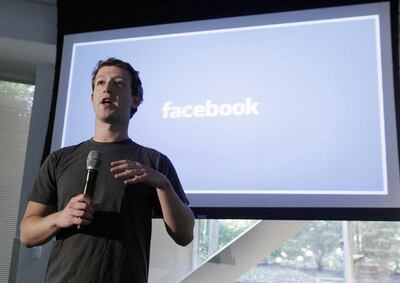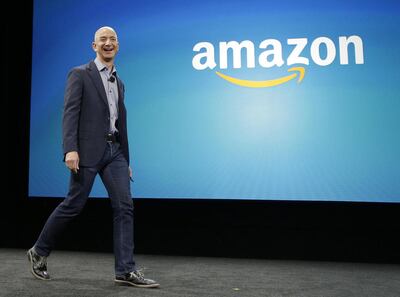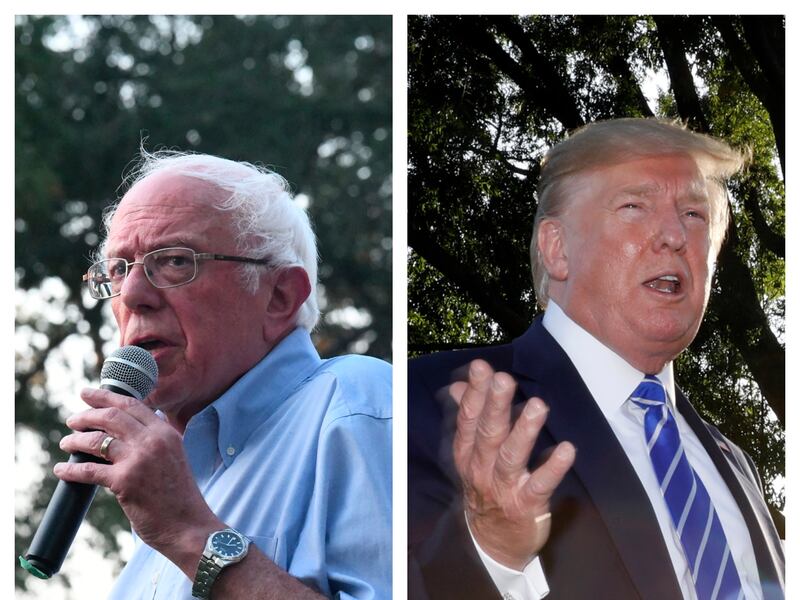SALT LAKE CITY — Republican President Donald Trump and Democratic presidential candidate Sen. Bernie Sanders landing on a shared political opinion is a rarefied happening.
But it appears the groundswell of concern and actions focused on big U.S. tech companies — and the question of how much power is too much — is providing at least a temporary bridge across a partisan divide that has proven too large a span for virtually every other major issue. And Utah is in the mix on big tech antitrust concerns as Attorney General Sean Reyes appears poised to join other states in coordinated investigations focused on large tech companies.
Trump has been publicly critical of various big, domestic technology concerns and the power they wield, including a recent lambasting of Google, which the president claimed in a tweet last week has an inherent liberal bias and led millions of undecided voters to support Sen. Hillary Clinton in the 2016 presidential election. And Sanders, along with fellow Democratic presidential contender Sen. Elizabeth Warren, has made calling for a potential breakup of big tech companies like Amazon, Facebook and Google part of his campaign platform.

Even conservative Utah Sen. Mike Lee, who rode into office on a wave propagated by the Tea Party movement in 2010 — a political subgroup that embraces small government and light-touch regulation among its tenets — pushed back against recent criticisms that he’s softened his stance on big tech thanks to campaign donations with ties to Google. A Lee spokesman told the Deseret News Utah’s senior senator has not changed his stance on big tech and, in a recent blogpost, cited a 2011 letter to the Federal Trade Commission in which Lee, along with then-Sen. Herb Kohl, D-Wis., called on the agency “to investigate the issues raised at our (Senate Subcommittee on Antitrust, Competitive Policy and Consumer Rights) hearing to determine whether Google’s actions violate antitrust law or substantially harm consumers or competition in this vital industry.”
Those investigations appear now to be a functional reality, with the Federal Trade Commission and U.S. Department of Justice having divvied up responsibilities a few months ago, with the Justice Department taking investigative authority over a Google parent Alphabet Inc. and Apple, while the FTC has jurisdictional oversight of Facebook and Amazon. In a July 23 release, the DOJ announced it had begun “reviewing whether and how market-leading online platforms have achieved market power and are engaging in practices that have reduced competition, stifled innovation or otherwise harmed consumers.”
UCLA professor Ramesh Srinivasan recently authored a Washington Post op-ed in which he critiqued the research performed by academic psychologist Robert Epstein, the basis of Trump’s social media postings about Google’s alleged influence on 2016 election results.
Srinivasan, a self-described progressive who has done policy consulting for both Sanders and Warren, argues that while Epstein’s basis of fact is squishy, he agrees that Google’s power has ascended to the point of deep concern.
“We both agree that the digital systems we use every day are dangerous to democracy,” Srinivasan wrote. “This is because the voices that create and monetize them are extremely limited — paving the way for a few tech billionaires to create the empires that monitor us daily, giving them the potential to manipulate our behavior.”
Srinivasan, whose forthcoming book “Beyond the Valley” looks at the power of big tech and potential paths forward to make innovation “fairer and more democratic,” told the Deseret News that antitrust actions are just one of a number of strategies that could be employed to restore some balance between the rights of individuals and the power of big business.
“People have a right to understand what is known about them,” Srinivasan said. “I think that is something fundamental not only to a democracy but also to the free market.
“The labor at these companies is done by machines ... algorithmic systems that can mine data, determine what you can see and make decisions for you,” he said. “Also, none of us are being compensated for the data we provide ... data that generates billions in profits and trillions in valuation for those companies that receive the spoils of that data.”
An upcoming hearing of the Senate Subcommittee on Antitrust, Competition Policy and Consumer Rights, which Lee co-chairs with Minnesota Democrat and current presidential candidate Sen. Amy Klobuchar, is an example of the bipartisanship big tech antitrust concerns is fomenting among Washington politicians.
Originally scheduled for July, the hearing will put FTC Chairman Joseph Simons and Makan Delrahim from the DOJ’s antitrust division in witness chairs on Sept. 17.
Lee and Klobuchar’s joint statement about their respective goals for the inquiry reflect some of the differences in how Republicans and Democrats are approaching big tech antitrust issues.
Lee is after details of federal investigation pathways, likely stemming from his argument that the legal measure of antitrust investigations needs to stay focused on “consumer welfare.”
“As the Federal Trade Commission and the Department of Justice’s Antitrust Division are apparently poised to begin investigations into possible antitrust violations by the tech industry, I am interested to learn more about the conduct the agencies will examine and the resources they will require to carry out this mission,” Lee said in a statement.
“I also intend to explore how and why the agencies are splitting the review of these tech firms between the two agencies.”
Klobuchar sees possible anticompetitive practices as a necessary central focus.
“In the wake of multiple reports that the Justice Department and the Federal Trade Commission may finally be initiating antitrust investigations into the largest tech firms, it’s critical that we and the American people have a good sense of what the agencies are actually doing to protect competition in this important part of our economy,” Klobuchar said in a statement.
”We need antitrust enforcement that meets the demands of the 21st century economy and enforcement agencies that have the resources and the will to undertake aggressive enforcement whenever and wherever competition is under threat. I look forward to discussing these matters with agency leadership,” she said.

University of Utah S.J. Quinney College of Law law professor and antitrust specialist Jorge Contreras said while California’s Silicon Valley companies, which include Google, Facebook and Apple, have been generally supportive of the Democratic Party, and even funneled talent to staff positions for former President Barack Obama, each party has its own stable of big business supporters. Taking aim at big tech concerns — from both sides of the political divide — has become a politically expedient maneuver, Contreras said.
“It’s become politically fashionable for people on both sides of the aisle to call for investigations,” Contreras said. “I think the end point will differ significantly depending on which side is in charge and running the investigations.”
Those remedies, Contreras believes, could range from “a very tailored remedy” should it come under a Republican controlled administration versus something much more sweeping should it occur under Democratic leadership. Remediation under a progressive administration could include “big structural remedies, possibly breaking up a company” or redefining how consumer data can be handled, perhaps via a nonprofit trust, Contreras said.
The bipartisan interest in investigating big tech companies by federal elected officials is also trickling down to the state level.
The Wall Street Journal reported last week that a “group of states is preparing to move forward with a joint antitrust investigation of big technology companies,” actions that have been expected for some months and may include the participation of the Utah Attorney General’s Office.
Reyes and 42 other state attorneys general signed a 25-page document that was submitted to the Federal Trade Commission in June following a series of gatherings that included both Republican and Democratic attorneys general as well as FTC representatives. Those meetings included conversations focused on how such big tech businesses block out competitors by sheer size and scope, why the intersection of personal data privacy and competition requires scrutiny, and how current, outdated antitrust regulations fall short of being an effective tool.
Reyes’ deputy and antitrust specialist, David Sonnenreich, said the analysis and discussions did not target any particular company and were intended to be a “call for recalibrating the way we look at antitrust and big tech.”
When asked this week if Utah would be participating in a coordinated effort among states to investigate, Reyes’ office declined to comment. But in July, Reyes said he could not “confirm or deny the existence of any specific investigations at this time,” and said that it’s typical for investigations to stay under wraps in complex cases.
”As conversations about these issues develop, Utah will continue to actively participate,” Reyes said in a prepared response. “It is also worth noting that antitrust investigations into complex industries frequently take a year or longer before they become public or result in a lawsuit being filed.”
Representatives for the tech giants argue the politicians are headed down the wrong path.

Carl Szabo, vice president and general counsel for tech trade association NetChoice, testified before the House Judiciary Antitrust Subcommittee in July in a two-part proceeding that included bipartisan grilling of witnesses about potential anticompetitive practices by big tech companies. NetChoice counts Facebook, Google, Twitter and others among its membership.
Szabo told the Deseret News there’s a sentiment afoot at state and federal levels to weaponize federal antitrust law.
“What you’re seeing is an attempt to use antitrust as a weapon to intimidate tech companies into complying with the whims of politicians,” Szabo said. “And that’s creating a dangerous precedent, not only for how we evaluate antitrust law for all businesses, but how we choose to treat issues of free speech for America.”
Szabo said the “lash outs” from some elected officials have stemmed from “tech businesses supporting or opposing the speech of a particular politician.”
He also noted polling conducted by his group, and others, reflects a disconnect between the will of voters and the “antitrust agendas” coming from both sides of the political divide.
“We did some polling and, not surprisingly, those making calls for anti-tech activity are out of touch,” Szabo said. “Polling conducted by NBC and the Wall Street Journal showed that Americans overwhelmingly like and support companies such as Google and Twitter and even companies like Facebook had a 50-50 breakdown.
“Democrats and Republicans advocating for anti-tech activity puts them out of touch with their constituents.”



